Vicente Lesser Gutiérrez est un artiste visuel et performeur né à Santiago (Chili), qui vit et travaille à Genève (Suisse).
Son travail, qui se déploie sous forme de sculptures, d’installations, de performances ou de projets éditoriaux, explore le rapport au patrimoine urbain. À travers la méthodologie de la promenade, il identifie les effets de la ville et de l’environnement sur les habitantes, habitants et leurs pratiques de l’espace construit. Ainsi, il aborde la planification urbaine et l’architecture à la fois comme des technologies de domination – ou de domestication – des corps, et comme des sources d’inspiration formelle.
Dans une démarche de reconstruction, il fait de l’architecture à la fois une méthode et un sujet de recherche. Ses installations immersives, nourries d’un imaginaire fictionnel, esquissent des formes alternatives de construction et d’habitation, ouvrant ainsi de nouvelles perspectives sur les potentialités de la ville et les manières de l’habiter.
Vicente Lesser Gutiérrez is a visual artist and performer born in Santiago (Chile), who lives and works in Geneva (Switzerland).
His work, which takes the form of sculptures, installations, performances and editorial projects, explores the relationship with urban heritage. Through the methodology of walking, he identifies the effects of the city and the environment on inhabitants and their practices in the built environment. In this way, he approaches urban planning and architecture both as technologies of domination – or domestication – of bodies, and as sources of formal inspiration.
In a process of reconstruction, he makes architecture both a method and a subject of research. His immersive installations, nourished by a fictional imagination, sketch out alternative forms of construction and habitation, thus opening up new perspectives on the potentialities of the city and the ways of inhabiting it.
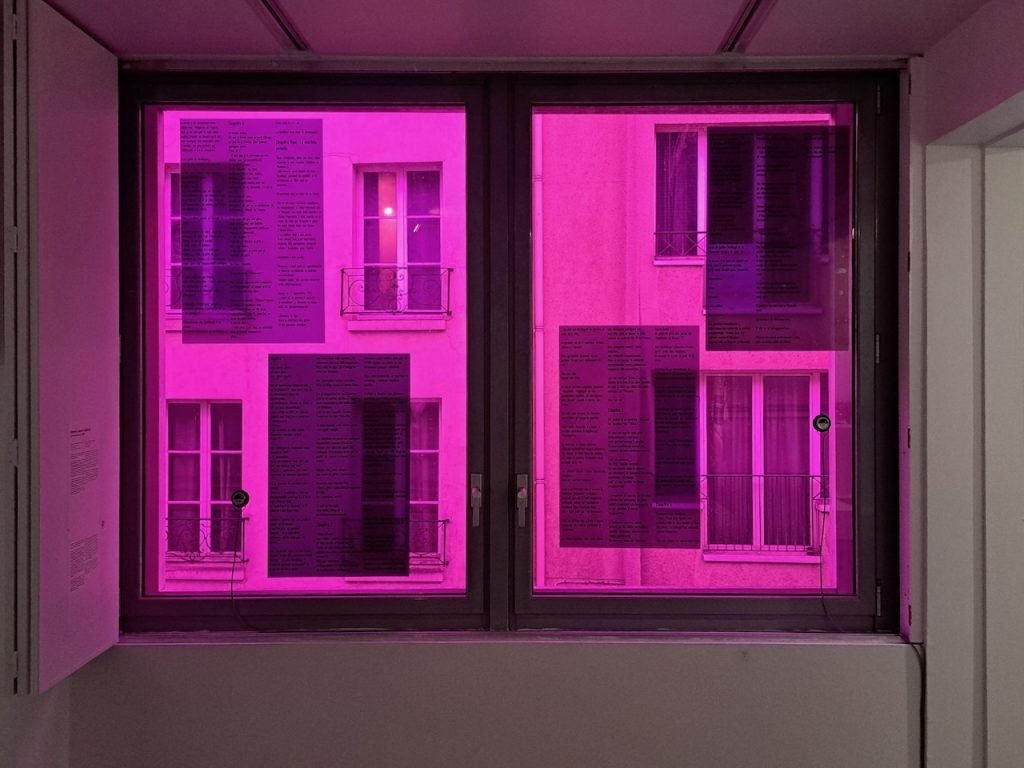
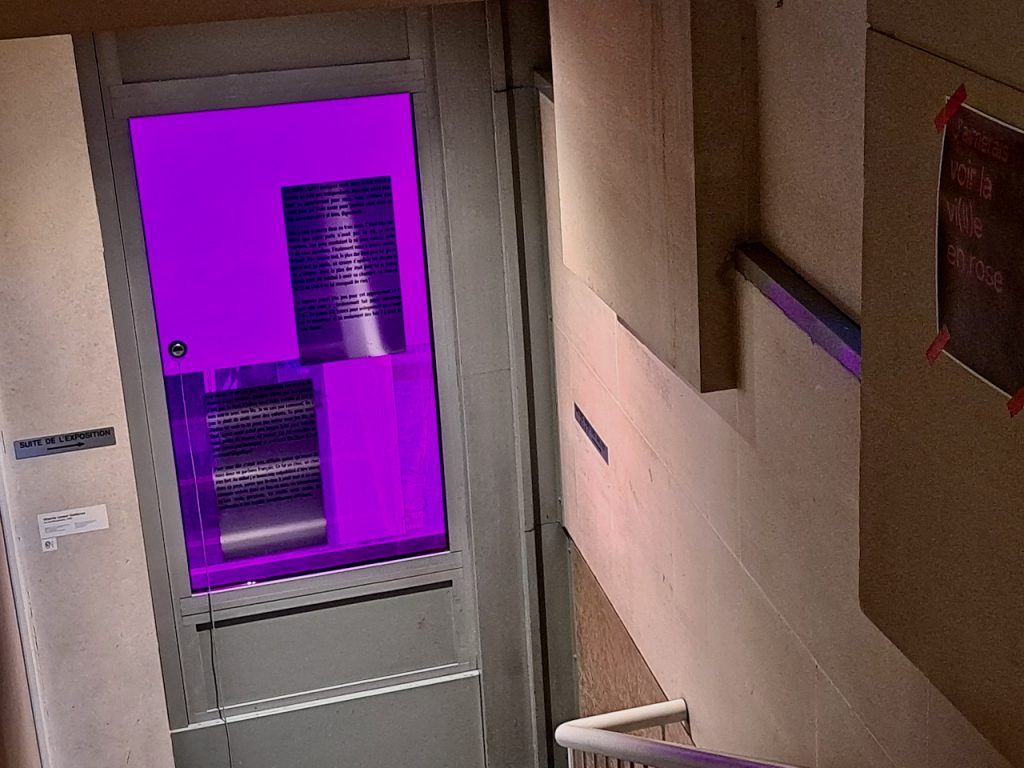
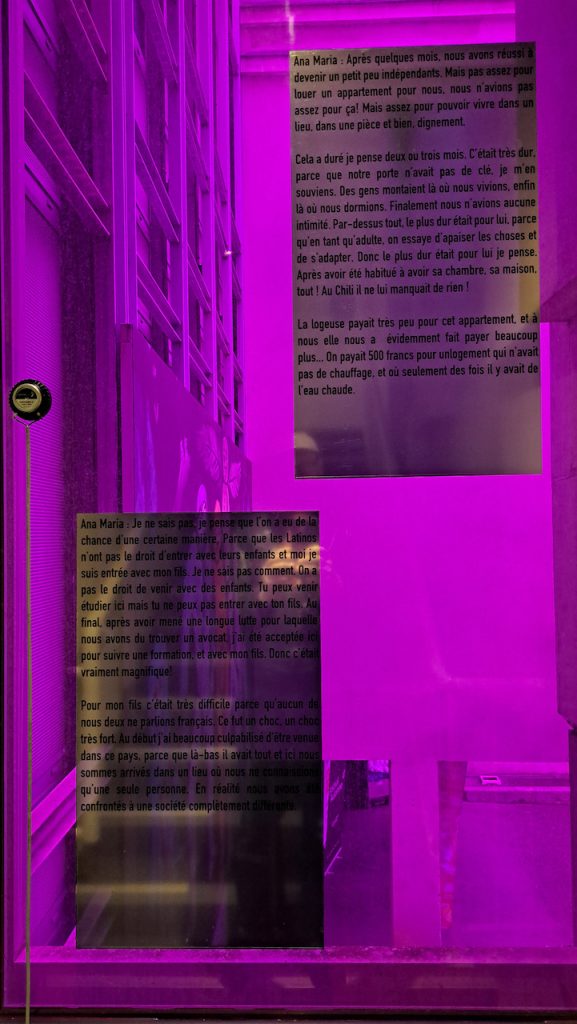
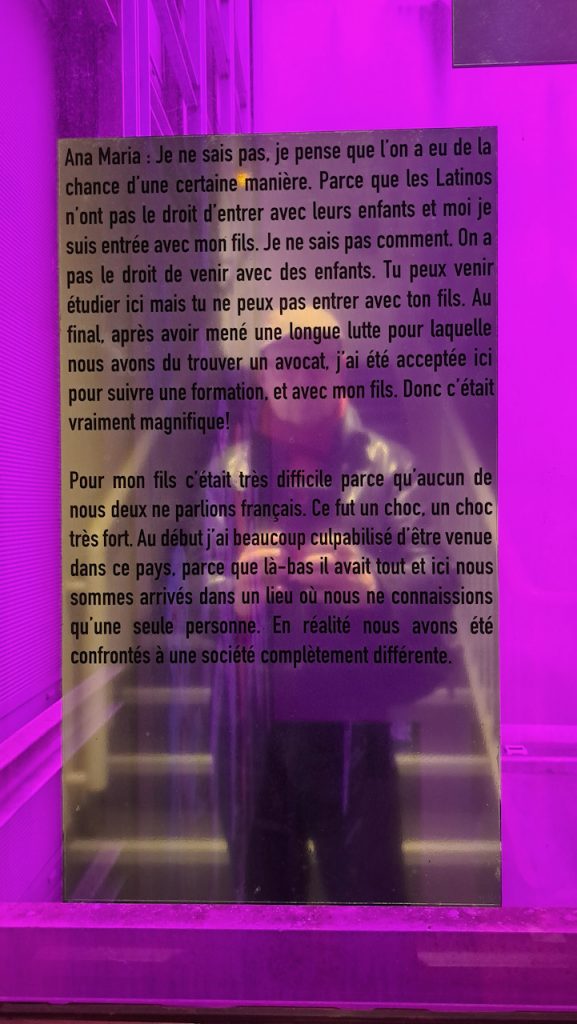
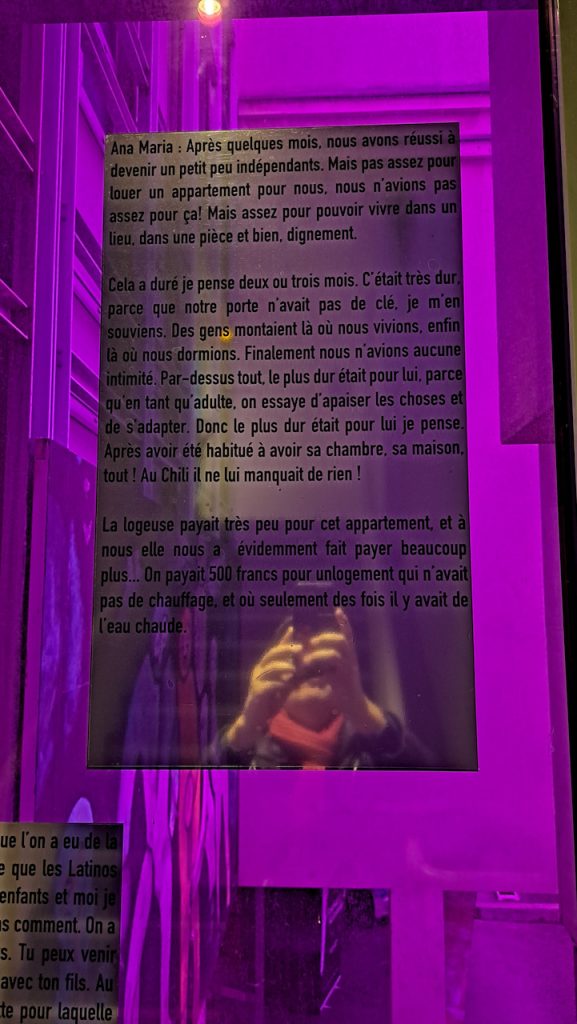
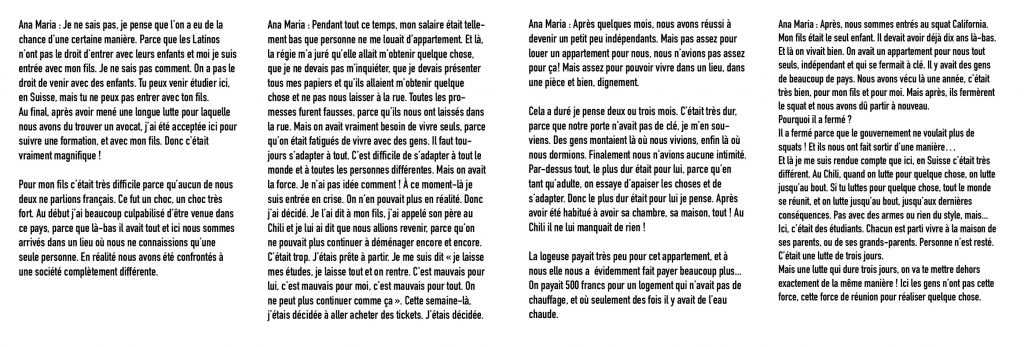
La mochila pesada (The heavy backpack), 2025
Sound recording, walking performance
En 2024, lors de sa résidence à la Cité internationale des arts à Paris, l’artiste découvre par hasard, à la suite d’une erreur de catalogage, le fonds d’archives de l’Association d’Ex-Prisonniers Politiques Chiliens – France, conservé à La Contemporaine (Nanterre, Paris). Ce fonds comprend 97 entretiens filmés avec des réfugiés politiques chiliens ayant fui la dictature du général Pinochet à partir de 1973.
Ce matériau précieux devient le point de départ d’un projet de recherche à long terme, centré sur la transmission des mémoires de l’exil. Un visage en particulier retient son attention : Oscar Castro, dramaturge, comédien et metteur en scène, fondateur du théâtre Aleph, arrivé en France en 1976. Son témoignage, empreint de poésie, agit comme un pont entre histoire personnelle et mémoire collective.
Des mois plus tard, une rencontre fortuite avec Cosme Castro, artiste et fils d’Oscar Castro, vient prolonger cette exploration des circulations mémorielles entre générations et territoires.
Pour l’exposition Paris des vi(ll)es, l’artiste propose alors une restitution de cette recherche sous la forme d’une promenade performative dans le quartier du Marais, suivie d’une conversation avec Cosme Castro pour interroger ensemble la manière dont les archives deviennent des lieux de vie, d’émotion et de récit partagé.
In 2024, during a residency at the Cité internationale des arts in Paris, the artist unexpectedly discovered, due to a cataloging error, the archive of the Association of Former Chilean Political Prisoners – France, held at La Contemporaine (Nanterre, Paris). This archive contains 97 filmed interviews with Chilean political refugees who fled the dictatorship of General Pinochet beginning in 1973.
This rich and moving material became the starting point for a long-term research project focused on the transmission of memories of exile. One figure stood out in particular: Oscar Castro, playwright, actor, and director, founder of Théâtre Aleph, who arrived in France in 1976. His testimony, deeply poetic, forms a bridge between personal history and collective memory.
Several months later, a chance encounter with Cosme Castro, artist and son of Oscar Castro, further deepened this exploration of memory’s circulation across generations and geographies.
For the exhibition Paris des vi(ll)es, the artist presents a performative walk through the Marais district, followed by a conversation with Cosme Castro, to reflect on the ways in which archives become spaces of life, emotion, and shared storytelling.
Vous devez être connecté pour poster un commentaire.